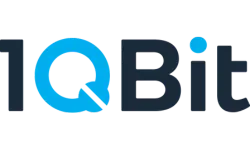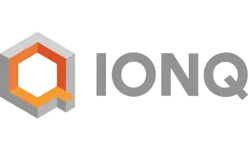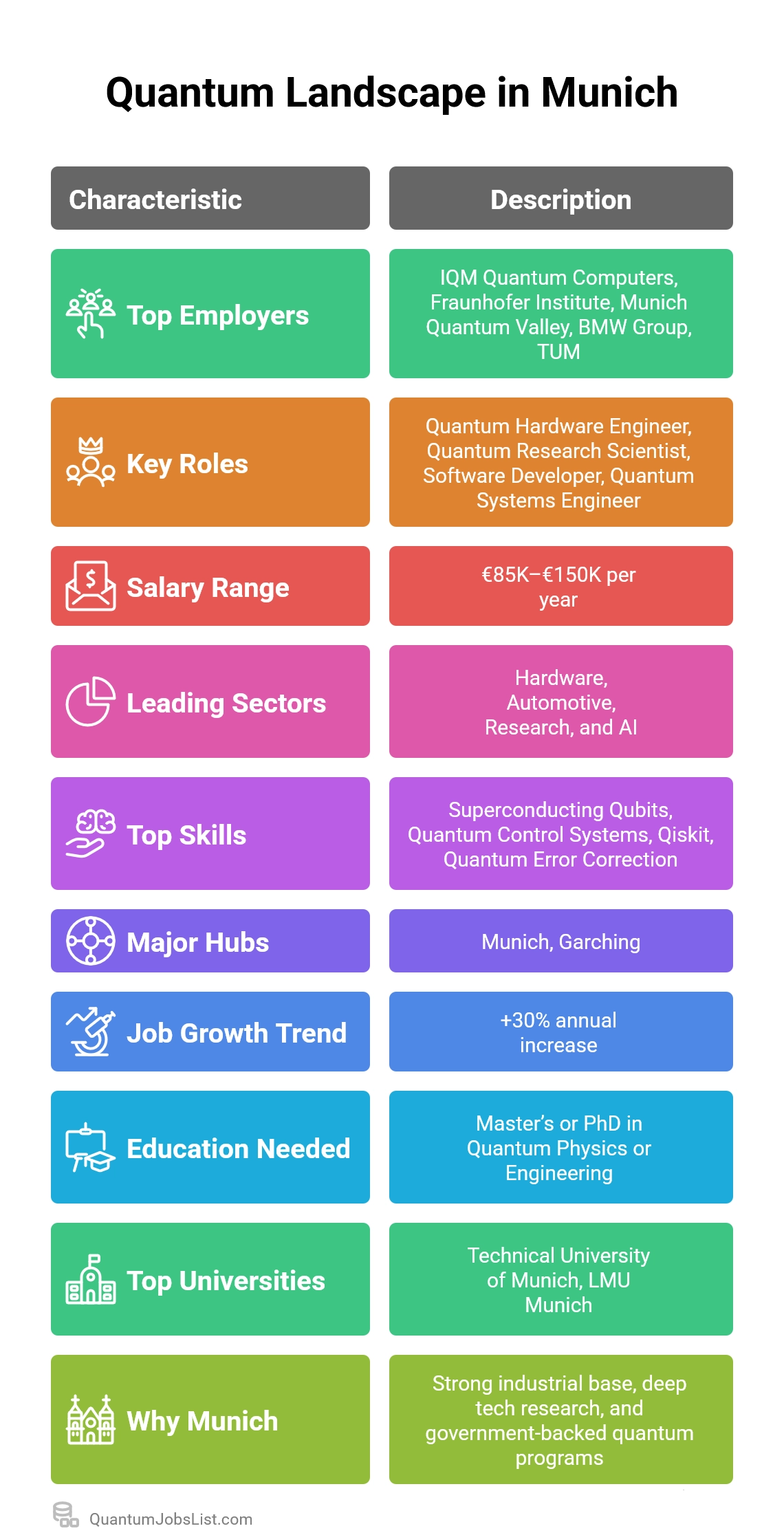












































Quantum Careers Near You in Munich
Get the Basics
Munich has emerged as Europe's quantum computing powerhouse. City is combining top research institutions, corporate investment & strong government funding to create a thriving quantum job market.
The prize is also a recognition of the many people with whom I’ve had the privilege to work here in Munich over the past 17 years and with whom I was able to shape the ‘quantum future.’ Immanuel Bloch (LMU Munich & MPQ)
What makes Munich attractive for quantum computing careers?
Munich has a strong quantum technology community supported by well-respected institutions and funding. TUM hosts the Munich Quantum Valley initiative, backed by €300 million from the Bavarian government.
The Max Planck Institute of Quantum Optics is nearby. Companies like Siemens, BMW, and Infineon are investing a lot in quantum applications. Germany’s €2 billion national quantum strategy and Munich’s high quality of life make it attractive to international talent.
Do I need to speak German to work in quantum computing in Munich?
In most technical jobs, English is the common language used in research and corporate teams. The majority of scientific work, code, and meetings are conducted in English.
However, for daily life and administrative tasks, especially for senior or client-facing roles, German is useful. Sometimes, companies provide employees with free or subsidised language courses. Even basic proficiency in the language can assist in one's integration and advancement in a career. You can learn more about Quantum Computing Jobs Germany here.
What quantum companies and institutions are hiring in Munich?
- IQM Quantum Computers: Fast-growing European quantum hardware company with significant Munich presence, hiring quantum physicists and engineers.
- Infineon Technologies: Semiconductor giant investing in quantum chip development.
- Planqc: Munich-based startup developing neutral atom quantum computers, actively building their team;
- Technical University of Munich (TUM): Offers research positions, PhD studentships, and postdoctoral fellowships across multiple quantum groups.
- Max Planck Institute of Quantum Optics: Premier research institution hiring experimental & theoretical quantum physicists.
- Siemens and BMW: Corporate research labs exploring quantum applications for industrial & automotive sectors.

What are the salary expectations for quantum jobs in Munich?
Entry-level researchers and PhD students earn €45,000-58,000 a year, with excellent benefits. Postdocs earn €52,000-68,000 a year.
Industry roles pay more: software engineers €65,000-95,000, hardware engineers €80,000-120,000. Senior researchers and team leads earn €110,000-160,000+; with comprehensive social benefits offsetting slightly lower nominal salaries than in the US. You can learn more about Quantum Jobs and Salaries here.
What visa and work permit requirements exist for non-EU quantum professionals?
Germany offers pathways like the EU Blue Card for highly skilled workers in the quantum field. To apply, you need a recognized qualification and a job offer, that meets a minimum salary requirement. This process allows for quick access to work in Germany. After 33 months, they can apply for a settlement permit, allowing permanent residency.
PhD holders can gain access with special research permits and job seeker visas. Quantum roles are considered as shortage occupations, and employers often provide immigration assistance.
What quantum specializations are most valued in Munich's job market?
Jobs in quantum hardware development, especially superconducting and trapped-ion systems, are in high demand. Skills in cryogenics, microwave electronics, lasers and vacuum technology are highly valued.
The industrial development of algorithms for quantum sensing and metrology is also in high demand. Quantum software engineers are needed to develop middleware, compilers, and error mitigation tools.

.svg)

